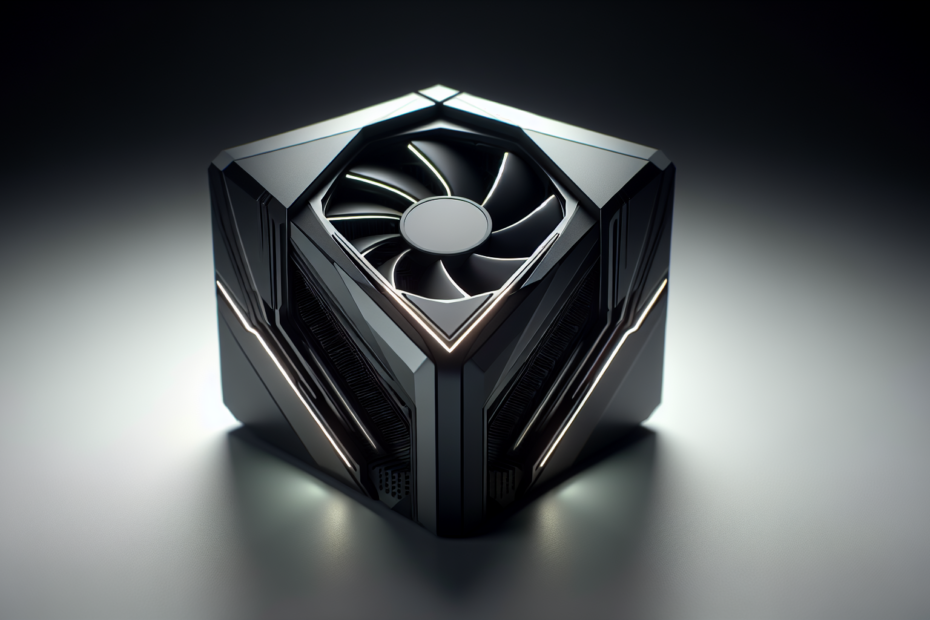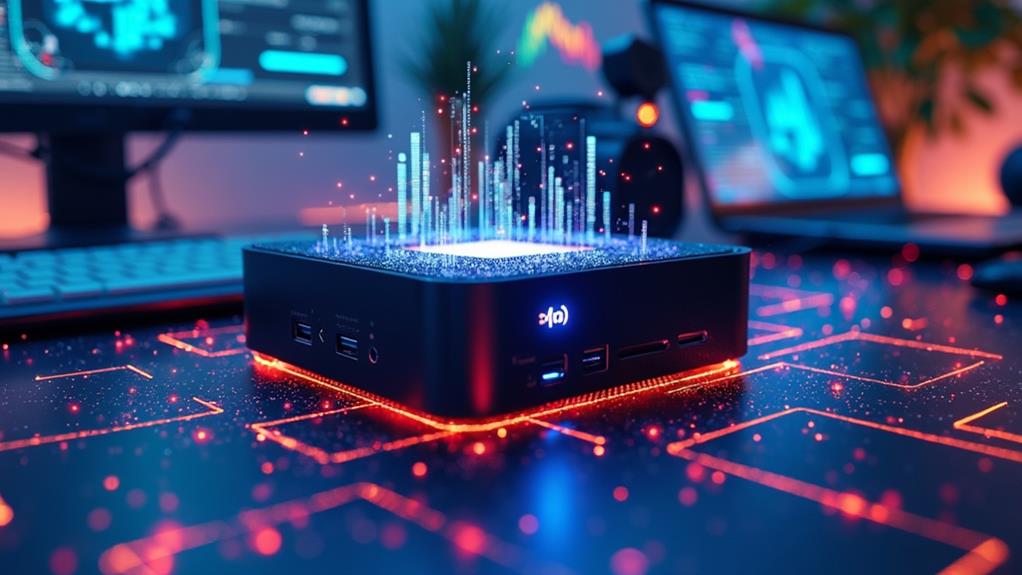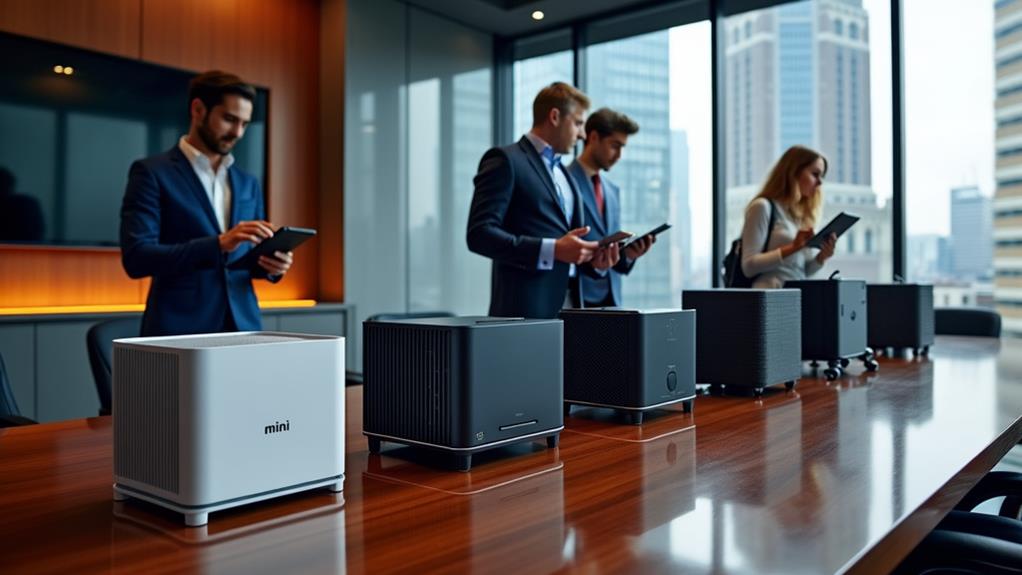



Have you ever wondered if a mini PC is capable of handling your gaming needs? If so, you’re in for a treat! In this article, we will explore the exciting world of mini PCs and their potential in the gaming realm. Whether you’re a casual gamer or a hardcore enthusiast, we will delve into the performance, graphics, and overall gaming experience that a mini PC can offer. So, buckle up and get ready to embark on a mini PC gaming adventure like no other! With the advancement of technology, mini PCs have become increasingly popular due to their compact size and portability. However, many people are hesitant to invest in a mini PC for gaming purposes. Can a mini PC really handle the demands of modern gaming? In this comprehensive article, we will explore various factors that contribute to a mini PC’s gaming capabilities, such as the graphics processing unit (GPU), processing power, memory (RAM), storage, cooling and heat management, connectivity, power supply and energy consumption, operating system compatibility, upgradability and expansion, as well as optimizing a mini PC for gaming.
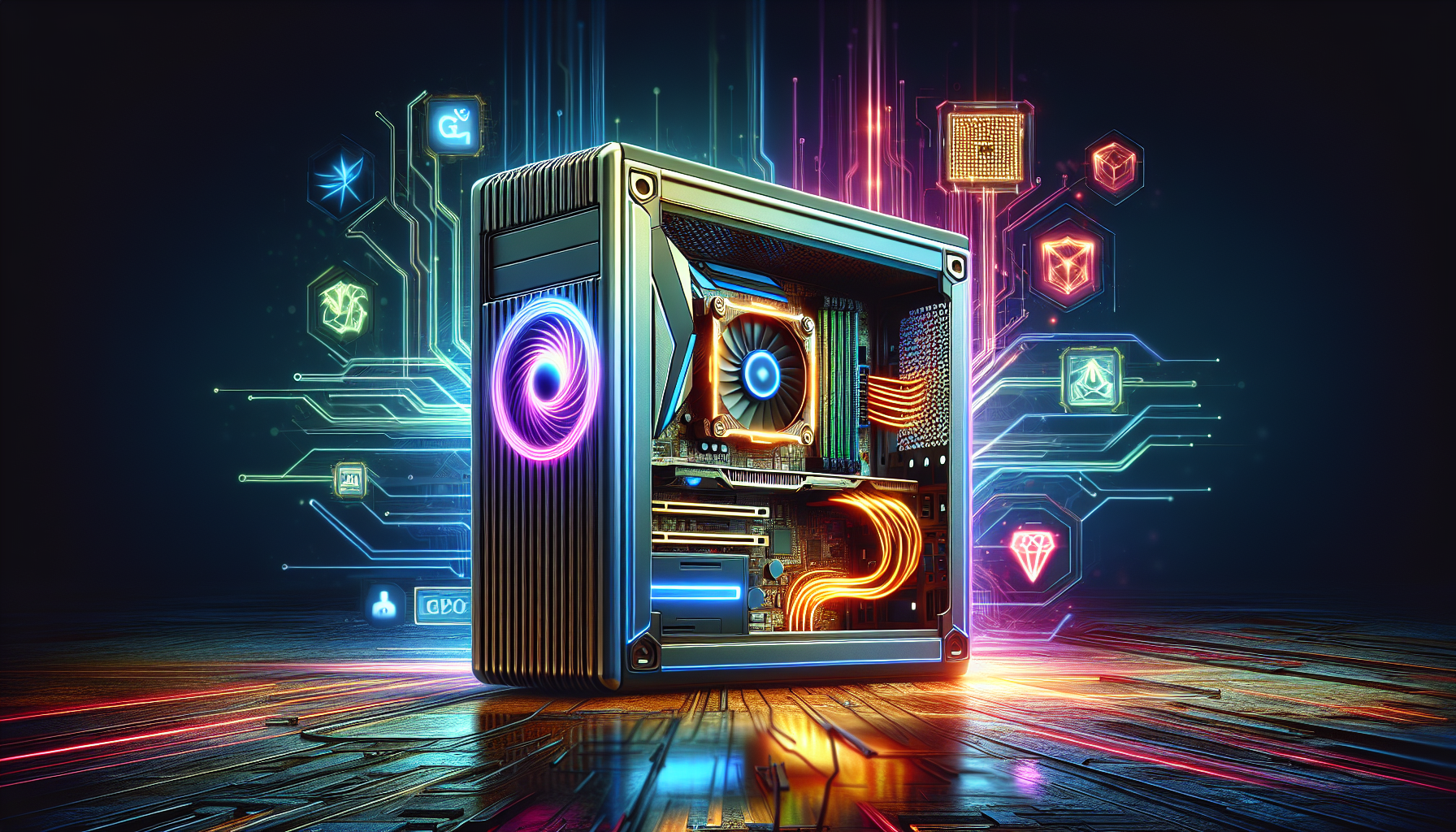
Graphics Processing Unit (GPU)
One of the key components that determines a computer’s gaming performance is the graphics processing unit (GPU). When it comes to mini PCs, there are two types of GPUs to consider – integrated and dedicated.
Integrated vs. Dedicated GPU
Integrated GPUs are built into the computer’s central processing unit (CPU) and share system memory, while dedicated GPUs are separate components with their own dedicated video memory. Integrated GPUs are generally less powerful and are suitable for casual gaming or older games with lower graphical requirements. On the other hand, dedicated GPUs offer significantly better gaming performance and are essential for running modern, graphics-intensive games.
Performance Comparison
In terms of gaming performance, dedicated GPUs far outshine integrated GPUs. They are designed specifically for processing complex 3D graphics and can handle higher resolutions, smoother framerates, and more realistic visual effects. If you are serious about gaming and want to experience the latest titles at their best, a mini PC with a dedicated GPU is the way to go.
Processing Power
The processor, or central processing unit (CPU), is another crucial component to consider when evaluating a mini PC’s gaming capabilities.
Processor (CPU) Selection
For gaming, it is important to choose a CPU with sufficient processing power. Look for processors with multiple cores and high clock speeds, as these factors contribute to overall performance. Quad-core or higher CPUs are ideal for gaming, as they can handle multiple tasks simultaneously, allowing for better multitasking and smoother gameplay.
Multithreading and Performance
Multithreading technology, such as Intel’s Hyper-Threading or AMD’s Simultaneous Multithreading (SMT), can also significantly enhance gaming performance. These technologies allow each physical core to work on multiple tasks simultaneously, effectively increasing the CPU’s performance.
Clock Speed
Clock speed, measured in gigahertz (GHz), determines how quickly the CPU can execute instructions. A higher clock speed generally translates to improved performance, especially in single-threaded tasks. Look for CPUs with faster clock speeds to ensure a smooth gaming experience.
Cache Size
The CPU’s cache acts as a temporary storage for frequently accessed data, enabling faster access and retrieval. A larger cache size can improve gaming performance by reducing the time it takes for the CPU to fetch data. When considering a mini PC for gaming, opt for CPUs with larger cache sizes to enhance overall performance.
Memory (RAM)
Sufficient RAM is critical for gaming, as it determines how much data can be accessed and processed by the CPU and GPU in real-time.
Sufficient RAM for Gaming
When it comes to gaming, having enough RAM is crucial. The minimum recommended RAM for gaming is typically 8GB, but for optimal performance, 16GB is recommended. With more RAM, the system can seamlessly handle the large amounts of data required for modern games, reducing lag and improving overall gameplay.
Dual Channel Memory
Utilizing dual-channel memory can further enhance gaming performance. Dual-channel memory configurations use two identical RAM modules that work together to double the available memory bandwidth. This means faster data transfer between the RAM and CPU, resulting in improved overall performance.
RAM Speed and Timings
The speed of the RAM, measured in megahertz (MHz), also impacts gaming performance. Higher RAM speeds can provide a noticeable boost in performance, especially in CPU-intensive games. Additionally, lower RAM timings, expressed as a series of numbers (e.g., 14-14-14-34), indicate how quickly the RAM can respond to requests. Look for RAM with higher speeds and lower timings for optimal gaming performance.
Storage
The storage component of a mini PC plays a crucial role in gaming performance, as it determines how quickly data can be loaded and accessed.
Hard Disk Drives (HDD)
Traditional hard disk drives (HDDs) offer large storage capacities at affordable prices, making them a viable choice for storing games. However, HDDs are slower than other storage options, resulting in longer load times for games and slower overall system performance.
Solid State Drives (SSD)
Solid state drives (SSDs) provide significantly faster read and write speeds compared to HDDs. Games installed on an SSD load more quickly, reducing waiting times and improving overall gaming experience. While SSDs are generally more expensive for higher storage capacities, the speed boost they provide is well worth the investment.
Hybrid Drives
Hybrid drives combine the speed of an SSD and the larger storage capacity of an HDD. These drives automatically store frequently accessed data on the SSD portion for faster access, while less frequently used data is stored on the HDD section. Hybrid drives offer a balance between speed and storage capacity, making them a suitable choice for gamers looking for a cost-effective solution.
Storage Capacity
The storage capacity required for gaming largely depends on the individual and the number of games they wish to install. Modern games can occupy a significant amount of storage space, with some AAA titles exceeding 100GB. Consider the size of the games you plan on playing and allocate sufficient storage capacity to accommodate your gaming needs.
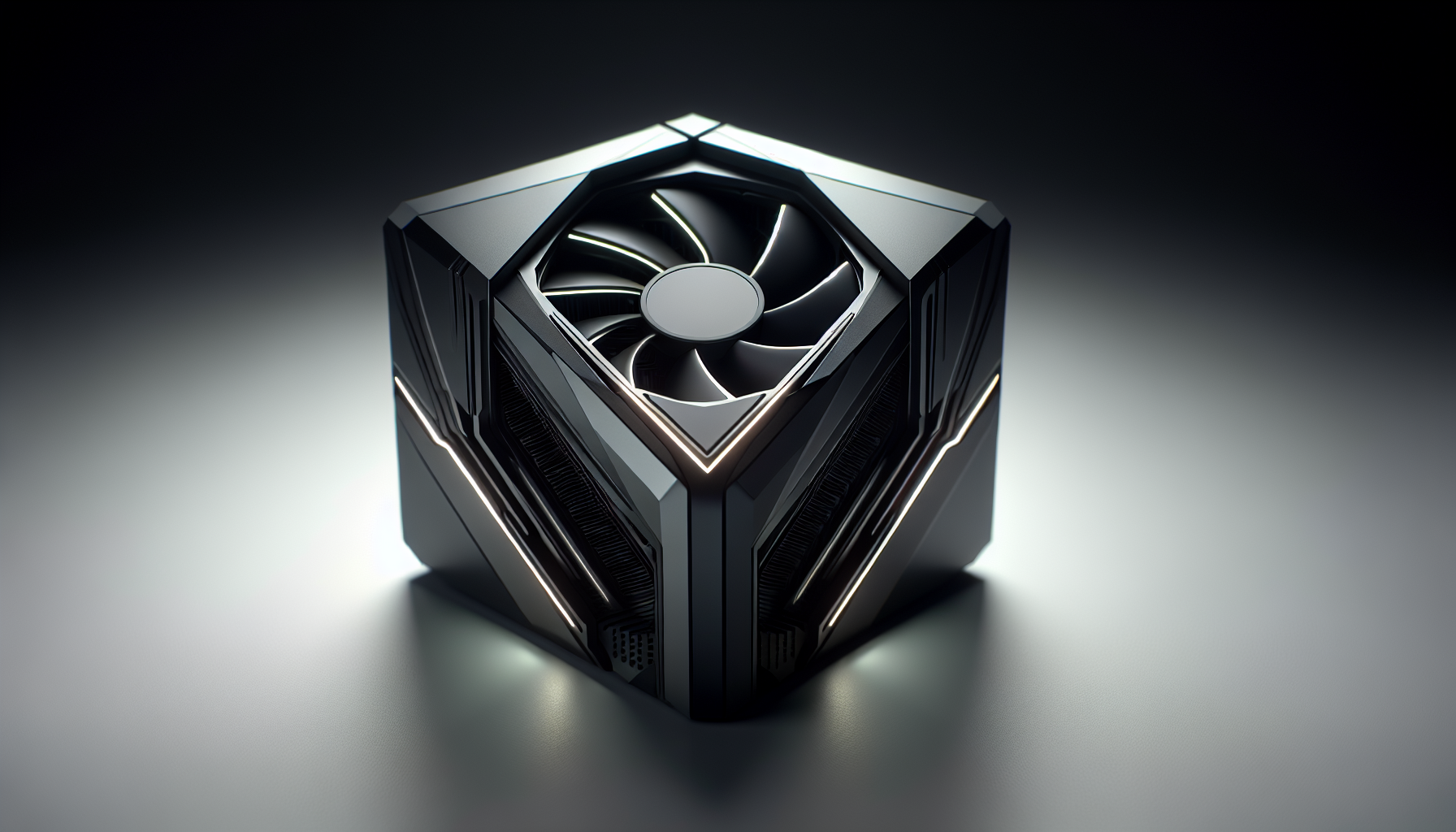
Cooling and Heat Management
Maintaining optimal temperatures is crucial for a mini PC’s longevity and gaming performance.
Cooling Systems
Mini PCs are often limited in terms of cooling options, as their compact size restricts airflow. To ensure adequate cooling, look for mini PCs with efficient cooling systems, such as multiple fans or liquid cooling solutions. These systems help dissipate heat more effectively, preventing thermal throttling and improving gaming performance.
Overclocking and Heat
Overclocking, which involves increasing the clock speeds of the CPU and GPU for extra performance, generates additional heat. While it can enhance gaming performance, it is important to consider the cooling capabilities of your mini PC before attempting overclocking. Adequate cooling is essential to prevent overheating and potential damage to the components.
Thermal Paste and Cooling Performance
The application of thermal paste between the CPU/GPU and their respective coolers can improve heat transfer and cooling performance. Ensure that your mini PC’s thermal paste is of high quality and correctly applied for optimal heat dissipation. Over time, thermal paste may need to be replaced to maintain optimal cooling efficiency.
Connectivity
A mini PC’s connectivity options can greatly impact the overall gaming experience.
Ports and Interfaces
Having a wide range of ports and interfaces is essential for connecting gaming peripherals, such as keyboards, mice, and controllers. Look for mini PCs with ample USB ports, audio jacks, HDMI or DisplayPort outputs, and Ethernet ports. These ports ensure seamless connectivity and compatibility with a variety of gaming devices.
Wireless Connectivity
In addition to wired connections, wireless connectivity is becoming increasingly important for gaming. Ensure that your mini PC supports the latest Wi-Fi standards, such as Wi-Fi 6, for faster and more reliable wireless connections. Bluetooth compatibility is also useful for connecting wireless controllers and other gaming accessories.
Power Supply and Energy Consumption
Selecting the right power supply unit (PSU) and considering energy consumption are crucial factors when choosing a mini PC for gaming.
Choosing the Right PSU
Mini PCs typically have lower power requirements compared to traditional desktop computers. However, it is still important to choose a PSU with sufficient wattage to support the components’ power demands. Look for PSUs with reputable brands and high efficiency ratings to ensure stable power delivery and minimize the risk of component damage.
Energy Efficiency and Consumption
Energy efficiency is also an important consideration, especially if you plan on using your mini PC for extended gaming sessions. Mini PCs with higher efficiency ratings consume less power and generate less heat, leading to a more stable and energy-conscious gaming experience. Look for mini PCs with ENERGY STAR certifications or high-efficiency labels for optimal energy consumption.
Operating System Compatibility
The choice of operating system (OS) can impact gaming performance and compatibility.
Windows vs. Other OS
While there are different operating systems available, Windows remains the most widely supported OS for gaming. The vast majority of games are developed with Windows compatibility in mind, making it the preferred choice for gamers.
Driver Support
Before purchasing a mini PC, ensure that the chosen OS is compatible with the hardware components. Check for driver support from the mini PC manufacturer to ensure that the necessary drivers are available for optimal performance and compatibility with games.
Upgradability and Expansion
The ability to upgrade and expand a mini PC is an important consideration for long-term gaming viability.
Adding More RAM
As games become more demanding, additional RAM may be required to maintain optimal performance. Look for mini PCs that allow for easy RAM upgrades, ensuring that you can expand the memory as needed.
Graphics Card Upgrades
Mini PCs with dedicated GPUs may allow for graphics card upgrades, enabling you to improve gaming performance by installing a more powerful GPU. If upgradability is a priority, ensure that the mini PC’s power supply and physical dimensions can accommodate future GPU upgrades.
Storage Expansion
Games continue to increase in size, making storage expansion capabilities crucial. Look for mini PCs that offer additional storage bays or support external storage options, such as USB or Thunderbolt connections, to easily expand your storage capacity as needed.
Optimizing Mini PC for Gaming
To get the most out of your mini PC for gaming, there are several steps you can take to optimize its performance.
Optimizing Graphics Settings
Within each game, there are various graphics settings that can be adjusted to achieve the right balance between performance and visual quality. Lowering graphics settings, such as resolution, texture quality, and anti-aliasing, can significantly improve frame rates and overall gaming performance.
Managing Background Processes
Closing unnecessary background processes and applications can free up system resources, allowing your mini PC to allocate more power to the game at hand. Disable or exit any non-essential programs and services before gaming to ensure maximum system resources are available for a smooth experience.
Avoiding Bloatware
Bloatware, pre-installed software that is often unnecessary and resource-intensive, can negatively impact gaming performance. Uninstall any unwanted or unused applications to free up system resources and optimize your mini PC’s gaming performance.
In conclusion, while mini PCs may be smaller in size, they can indeed handle gaming with the right components and considerations. By taking into account factors such as GPU performance, processing power, memory, storage, cooling and heat management, connectivity, power supply and energy consumption, operating system compatibility, and upgradability, you can find a mini PC that meets your gaming needs. Additionally, by optimizing your mini PC for gaming, you can achieve smooth gameplay and an enjoyable gaming experience. So don’t let their small stature fool you – mini PCs can pack a punch when it comes to gaming.
Disclosure: As an Amazon Associate, I earn from qualifying purchases.
